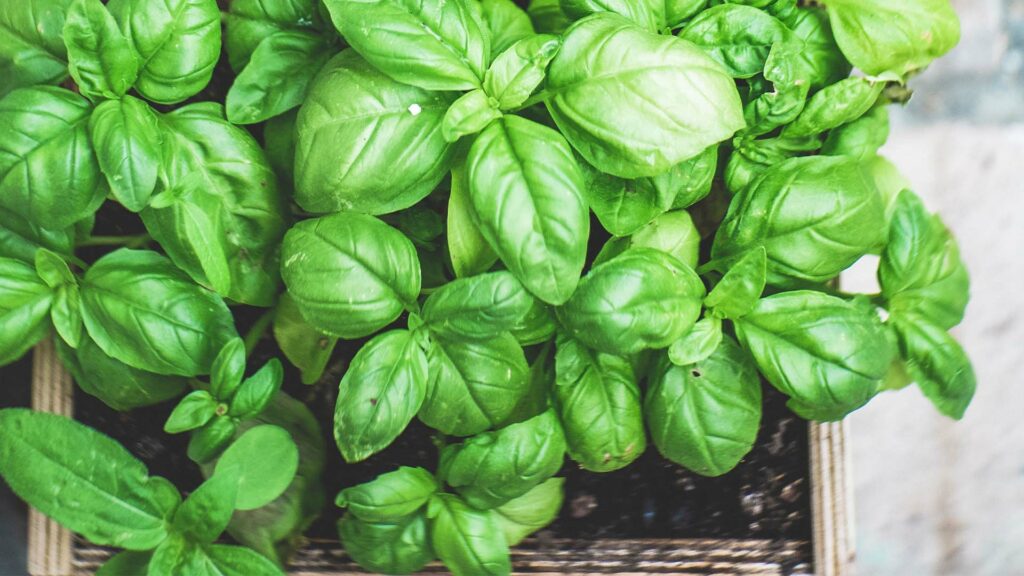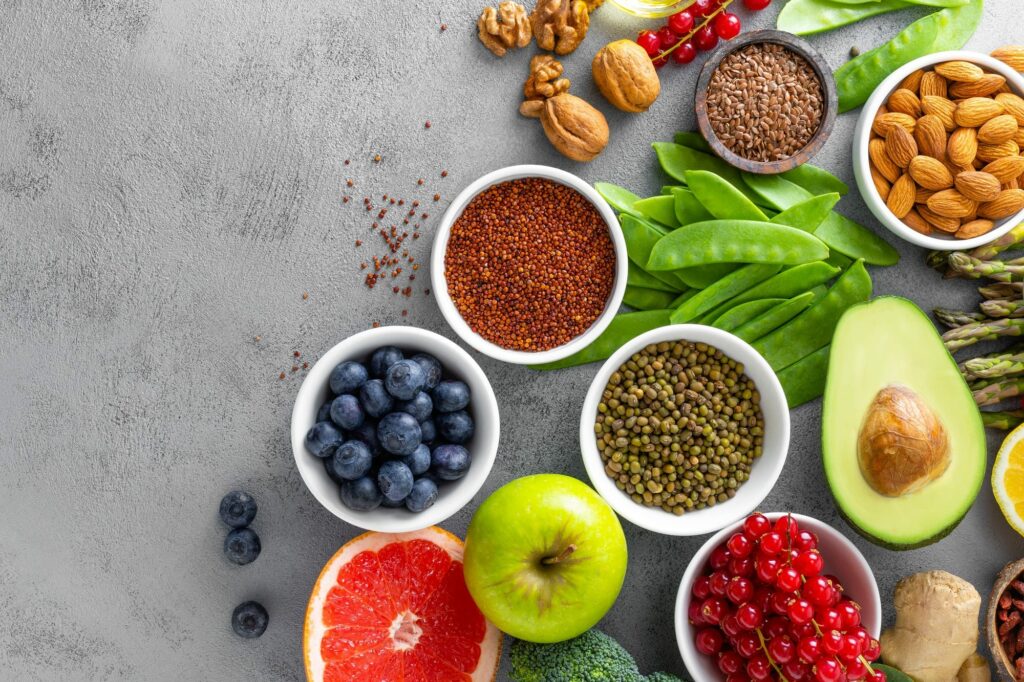
Basil, scientifically known as Ocimum basilicum, is a popular culinary herb that is native to the tropical regions of Asia and Africa. It has been used for centuries in various cuisines for its aromatic flavor and medicinal properties. Basil belongs to the mint family and is known for its vibrant green leaves and distinct aroma. In this comprehensive guide, we will explore the nutrition profile, health benefits, uses, and more of this versatile herb.
Nutrition Profile:
Basil is a nutrient-dense herb that offers a range of essential vitamins, minerals, and antioxidants. Here is a breakdown of its nutritional composition:
- Vitamins: Basil is an excellent source of vitamin K, providing about 98% of the recommended daily intake per 100 grams. It also contains vitamin A, vitamin C, vitamin E, and vitamin B6 in smaller amounts.
- Minerals: Basil is rich in minerals such as calcium, iron, magnesium, potassium, and manganese. These minerals play vital roles in maintaining bone health, blood pressure regulation, and enzyme function.
- Phytochemicals: Basil contains several beneficial phytochemicals, including flavonoids, anthocyanins, and rosmarinic acid. These compounds possess antioxidant and anti-inflammatory properties, which contribute to the herb’s health benefits.
Health Benefits:
- Antioxidant properties: Basil is known for its potent antioxidant activity. The antioxidants present in basil help neutralize harmful free radicals in the body, reducing oxidative stress and the risk of chronic diseases such as heart disease and certain types of cancer.
- Anti-inflammatory effects: The essential oils found in basil, such as eugenol, linalool, and citronellol, have anti-inflammatory properties. Consuming basil or using basil essential oil may help alleviate inflammation in the body and related conditions like arthritis.
- Digestive support: Basil has been used in traditional medicine for its digestive benefits. It can help soothe the stomach, reduce bloating, and aid in digestion. Basil also exhibits antimicrobial properties that can help fight against harmful bacteria, parasites, and yeast in the digestive system.
- Cardiovascular health: Basil may contribute to heart health by lowering cholesterol levels, reducing blood pressure, and preventing the formation of blood clots. The presence of eugenol in basil helps relax blood vessels, improving blood flow and reducing strain on the heart.
Stress relief: Basil has been used in aromatherapy for its calming and stress-relieving properties. Inhaling the aroma of basil essential oil or using it in a diffuser can help promote relaxation, reduce anxiety, and improve mood.
Uses:
- Culinary uses: Basil is a staple herb in many cuisines worldwide. It adds a fresh, aromatic flavor to various dishes, including pasta sauces, soups, salads, and pesto. Basil can be used as a garnish or infused into oils and vinegars for added taste.
- Herbal teas: Basil leaves can be used to prepare refreshing herbal teas. Steeping a few basil leaves in hot water releases their flavors and therapeutic compounds. Basil tea is often consumed to aid digestion, relieve stress, and boost immunity.
- Natural remedies: Basil has been used in traditional medicine for its medicinal properties. It can be used topically as an essential oil or made into a poultice to soothe insect bites, skin irritations, and minor wounds. Basil oil can also be added to massage oils or baths for relaxation and pain relief.
- Home gardening: Basil is relatively easy to grow at home, either in a garden or in pots. Having a basil plant in your garden allows you to have a fresh supply of this versatile herb whenever you need it. Basil thrives in warm climates and requires well-drained soil and plenty of sunlight.
Precautions and Considerations:
While basil is generally safe for consumption, there are a few precautions and considerations to keep in mind:
- Allergies: Some individuals may have allergies or sensitivities to basil. If you experience any allergic reactions such as itching, swelling, or difficulty breathing after consuming basil, discontinue use and consult a healthcare professional.
- Drug interactions: Basil may interact with certain medications, including blood thinners and anticoagulants. If you are taking any medications, consult your healthcare provider before incorporating basil into your diet or using basil supplements.
- Pregnancy and breastfeeding: While basil is generally considered safe during pregnancy and breastfeeding when consumed in moderation, it is advisable to consult with a healthcare professional to ensure its safety for your specific situation.
Conclusion:
Basil is more than just a flavorful herb used in cooking; it offers a range of health benefits and culinary versatility. With its impressive nutritional profile, antioxidant properties, and various culinary and medicinal uses, basil deserves a prominent place in your kitchen and daily life. Whether you sprinkle it over a Caprese salad or enjoy a cup of soothing basil tea, this aromatic herb can enhance your overall well-being in numerous ways.
- Top CBD Gummies from Just CBD: A Fun, Flavorful Review & Comparison - August 21, 2024
- Exploring the Essence of Naturally Extracted Tobacco: A Journey into Pure Flavor and Tradition - February 27, 2024
- Basil: Nutrition, Health Benefits, Uses and More - July 10, 2023



